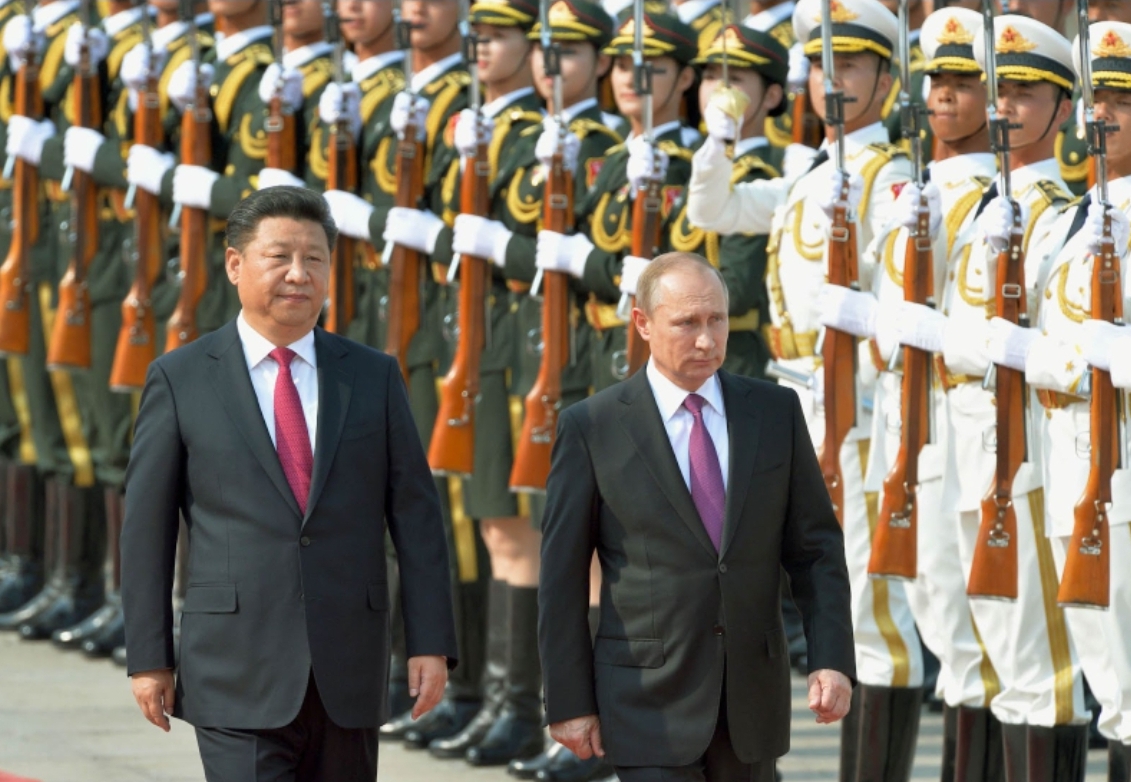In February 2024, Freedom House, a non-profit organization promoting democracy and human rights, released its annual report on the state of freedom around the world. Its findings were concerning, to say the least. It found that in 2023, global freedom had declined for the 18th consecutive year, with 52 countries suffering a decline in their freedom rating in contrast to only 21 improving. This reflects the trend of democratic backsliding being experienced all over the world. In many cases, people are actively choosing the leaders who contribute to this.
In this article, we will examine the common traits of authoritarian leaders, and why people may be inclined to elect them.
The Strongman Image

Autocrats tend to love grand displays of power. A common example of this are the military parades often shown in China and Russia. Autocrats tend to use their image as representative of the national image, and therefore they feel the need to appear strong. This is evident in Russian President Vladimir Putin’s famous picture of himself riding a horse bare-chested, or in El Salvador’s President Nayib Bukele’s sending of troops to the country’s legislative building to intimidate them to pass a bill. By taking on this tough persona, they build a cult of personality around themselves and send the message to their citizens that the strongman image is necessary to intimidate the country’s enemies.
The Problem Solver Image
As part of their desire to project strength, autocrats go out of their way to proclaim themselves as the antidote to the nation’s mishaps. In the 1920s, Hitler’s Nazi Party ran on a platform of blaming Communists and Jews for Germany’s problems. Germany, of course, had been humiliated in the aftermath of their defeat in the First World War and economic woes had made the populace dissatisfied with the status quo. Nazi rhetoric resonated with wide swaths of the German people and led to its becoming the largest party in the Reichstag and Hitler’s eventual rise to power. People understandably desire a simpler world, and autocrats provide that for them by simplifying the root of the problem and blaming it on one thing. Frightened people are more likely to elect charismatic leaders who say they are the only solution to the problem. For instance, Viktor Orban’s shift to the right in Hungary has been buoyed by fears of Muslims and refugees. In Venezuela, Nicolas Maduro frequently blames the U.S. for the nation’s problems. Minorities, immigrants, and so-called outsiders are typically exploited by autocrats to set up a theme of national humiliation – while promising to restore the country to greatness.
Dismantling Institutions
Now, one would think that the opposition parties or the media would push back on the autocrats’ narrative. Well, an autocratic leader will attempt to weaken any attempt to check their power. Military juntas established in Burkina Faso, Mali, and Niger cracked down on the media and obstructed the work of the press. In the Philippines, members of the House of Representatives allied with Philippine President Duterte voted to shut down the country’s largest media network. In Chinese-controlled Hong Kong, the opposition has been rendered nonexistent as a result of Beijing’s crackdown on pro-democracy activism, with the pro-Beijing camp controlling 88 out of 90 seats of Hong Kong’s legislature. Autocrats often rally public support in dehumanizing the opposition, often justifying violence and harassment against them. When an autocrat has the public’s support, they will leverage that to crack down on the media, the opposition, the judiciary – any institution they perceive as obstructive to their goals. This results in the erosion of checks and balances designed to keep a leader to account.
Why Autocrats?

After hearing all of this, one may wonder, “Why would anyone support any of these?” The truth is that supporters of such autocratic regimes often overlook these negative aspects and only see the positive ones. In El Salvador, where the crime rate fell 70% in 2023 as a result of the government’s relentless crackdown on gangs, President Nayib Bukele remains popular among the people. One of the more benevolent examples of autocratic government exists in Singapore, where the ruling party has held power since independence and is praised for its fast development into becoming one of the Four Asian Tigers. People love a leader who can discipline a country and solve its problems, outweighing the negatives with the positives. Toughness resonates with the populace – no one likes a weak-looking leader. They seek order amidst the chaos and want someone who can reign in the country’s problems. This is especially true in developing countries where problems still persist. A recent survey by the Pew Research Center showed majorities of respondents in middle-income countries favoring a strong leader. This is in contrast to wealthier nations such as the U.S. and European countries. When there are problems plaguing the system, people become fearful and distrustful and want stability even if it means disregarding democratic principles. In the average person, law and order take priority over upholding democratic values.
Reversing the Tide
Pushing back against authoritarianism is needed in a world where governments have rolled back rights, dismantled institutions, and repressed dissent. Ultimately, authoritarianism comes as a result of resentment and hopelessness. People who are tired of the system ignoring them and remaining stagnant want radical change, so they turn to autocrats to see that change. Democracy by design can often be irritating and slow, but getting rid of it triggers a slow march towards something much worse. To reverse the tide of authoritarianism means to keep hope alive. It means organizing, fighting, and rallying for change. Civic engagement is the key to stopping the spread of authoritarianism. Developing empathy and discussing with the opposing side is key to developing a healthy, vibrant democracy. It opens people up to the political process, educates them, and inspires hope in the process.
Sources
https://freedomhouse.org/sites/default/files/2024-02/FIW_2024_DigitalBooklet.pdf
Emil Ordonez, a rising college freshman, is the founder and editor-in-chief of Polinsights. He has been deeply passionate about politics and history since learning every U.S. President at the age of five. He was compelled to start this blog after meeting many people who were misinformed or had become apathetic about how society worked. He hopes to provide factual knowledge and insights that will encourage people, especially the young, to get more engaged in their respective communities. In his free time, he edits for Wikipedia and makes maps for elections. He aspires to work in Congress or even the White House in the future.


Leave a Reply